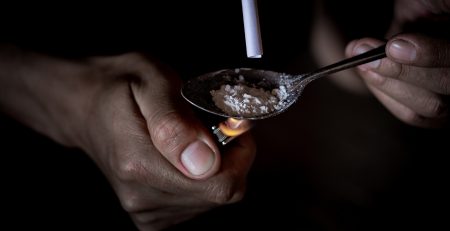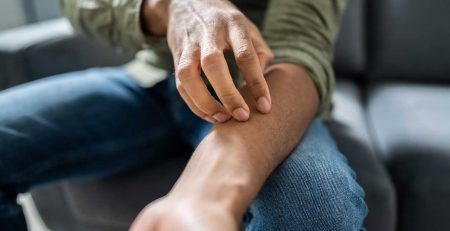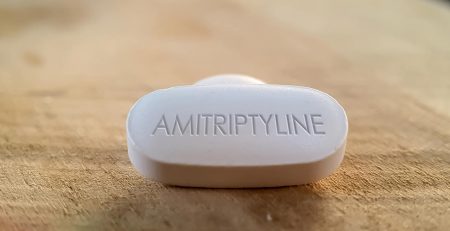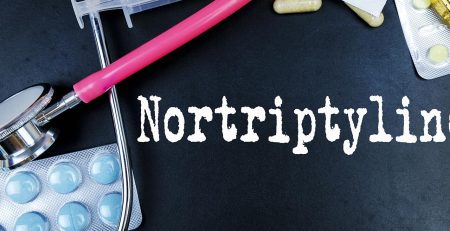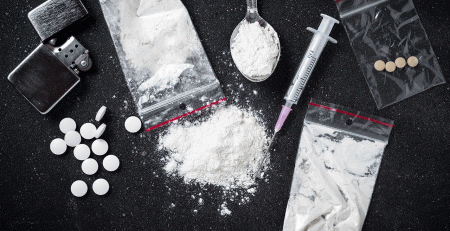Understanding the proper course of action in the event of an overdose can be a matter of life or death. Overdoses, whether from illicit substances or prescription medications, are medical emergencies that demand swift and precise responses. Today, the experts at our BHOPB detox center explain the essential guidelines and steps on what to do if you overdose, offering valuable insights into the signs, immediate interventions, and the crucial role of medical care in ensuring the best possible outcomes. By equipping yourself with this knowledge, you can play a vital role in potentially saving a life and promoting greater awareness of overdose prevention and response.
What Can You Overdose On?
In the context of substance use, an overdose occurs when an individual consumes a quantity of a substance (such as drugs or alcohol) that’s higher than their body can safely metabolize or tolerate. This excessive consumption of a substance can result in a wide range of adverse reactions and potentially life-threatening symptoms.
Various substances can cause overdose, including both illegal and legal drugs, medications, and even some household items. Below is a list of substances that can cause overdose:
- Alcohol: More specifically referred to as alcohol poisoning.
- Benzodiazepines: Includes medications like Xanax (alprazolam), Flexeril or Amrix (cyclobenzaprine), Klonopin or Rivotril (clonazepam), Ativan (lorazepam), and Valium (diazepam).
- Hallucinogens: Lysergic acid diethylamide (LSD), mescaline, psilocybin, and phenylcyclohexyl piperidine (PCP).
- Household chemicals: Cleaning products or pesticides.
- Illicit drugs: Including cocaine, methamphetamine, heroin, and ecstasy (MDMA).
- Opioids: Includes both medications like codeine and illicit opioids like heroin.
- Prescription and over-the-counter medications: Includes opioids, benzos, antidepressants, sedatives, stimulants, and cold and cough medicines.
- Sedatives and hypnotics: Barbiturates, benzodiazepines (benzos), gamma-hydroxybutyrate (GHB), opioids, and sleep medications.
- Stimulants: Illegal stimulants like cocaine and meth and legal stimulants like Ritalin and Adderall.
- Synthetic drugs: Includes synthetic cathinones and synthetic cannabinoids (bath salts and synthetic weed).
It’s important to note that each substance can have varying effects and overdose symptoms. It’s important to be aware of the drugs that can cause overdose to ensure prevention as well as safe medication use.
Questions about our Programs?
Our admissions coordinators are available 24/7 to answer any questions you may have as you consider whether treatment at Banyan is right for you or your loved one.
What Does an Overdose Feel Like?
The specific symptoms of overdose depend on the substance involved. For example, when someone overdoses on alcohol (otherwise referred to as alcohol poisoning), they may experience symptoms like confusion, vomiting, slow or irregular breathing, and coma or death in severe cases. On the other hand, individuals who overdose on stimulants like methamphetamine may experience agitation, restlessness, increased heart rate and blood pressure, and tremors.
Experiencing an overdose can lead to a range of negative sensations and symptoms, which vary based on the substance in question. Individuals might encounter intense confusion, dizziness, or a sense of disorientation when they overdose. Physical symptoms may also occur, such as changes in heart rate, body temperature, and breathing.
Generally speaking, common symptoms and signs of overdosing include:
- Confusion, including extreme confusion
- Delirium
- Extreme agitation
- Inability to stay awake or coherent
- Unresponsiveness
- Slow, shallow, irregular breathing or difficulty breathing
- Rapid or irregular heart rate or heart palpitations
- Chest pain
- Pale, clammy skin or bluish lips and fingertips
- Nausea and vomiting
- Unconsciousness
- Severe chest pain
- Paranoia
- Hallucinations
It’s important to be aware of what an overdose looks like to increase the likelihood of receiving efficient and swift medical intervention.
What to Do if You Overdose at Home
Knowing what to do if someone is overdosing can mean the difference between life and death. Below are steps on what to do if you overdose and you’re by yourself, as well as a guide on how to help someone who’s overdosing.
What to Do if You Overdose Alone
Knowing what to do if you overdose by yourself is important, as there might not be anyone around to help. If you’re afraid of this happening, here are some steps you can take to increase your likelihood of recovering:
- Call emergency services: The moment you realize an overdose is occurring, call 9-1-1 or your local emergency number immediately. Be sure to provide clear and accurate information about the situation, including the substances.
- Administer naloxone (Narcan), if applicable: If it’s an opioid overdose and you have access to naloxone, administer it as instructed. Naloxone can temporarily reverse symptoms and allow time for medical help to arrive.
- Stay conscious and alert: Try to stay awake and responsive. Avoid lying down, if possible, as this can make breathing more difficult.
- Stay near a phone: If you’re unable to make the call to emergency services, stay near the phone in case someone attempts to reach you.
- Try not to leave yourself unattended: If you lose consciousness or become unable to respond, try to get yourself near someone. Go to a neighbor or go to the nearest store if you’re able to move. Having someone nearby can increase your chances of receiving help quickly.
- Don’t wait to get help: The moment you suspect that you’re overdosing, get help. Do not wait to call emergency services or go to the hospital.
- Alerts others (if possible): If there’s anyone you can contact, let them know about your situation. They might be able to support you or call emergency services on your behalf.
- Stay calm: We understand that overdosing can be a terrifying situation, but it’s important to stay as calm as possible. This can ensure that you make informed decisions and communicate effectively with medical personnel.
What to Do if Someone Else Overdoses
If you’re with someone who happens to experience an overdose, here are the steps you can take to increase their chances of recovering:
- Call emergency services: The moment you realize an overdose is occurring, call 9-1-1 or your local emergency number immediately. Be sure to provide clear and accurate information about the situation, including the substances.
- Administer naloxone (Narcan), if applicable: If it’s an opioid overdose and you have access to naloxone, administer it as instructed. Naloxone can temporarily reverse symptoms and allow time for medical help to arrive.
- Stay with the person: While waiting for medical professionals to arrive, stay with the individual and monitor them while you wait. Try to keep them awake and responsive, if possible.
- Perform CPR (if needed): If the individual stops breathing or their heart stops, begin CPR (cardiopulmonary resuscitation) if you’re trained to do so.
- Lay them on their side: If the individual begins vomiting or spitting up, lay them on their side to prevent choking.
- Avoid leaving them alone: Do not leave the individual alone, especially if they’re unconscious, struggling to breathe, or they’re unstable.
- Gather information: Be prepared to provide as much information to medical personnel as possible about the substance involved, the dose consumed (if possible), and any medications or medical conditions the individual may be taking or has.
- Do not use home remedies: Refrain from attempting any home remedies or unconventional treatments. It’s important to wait until medical help can offer the appropriate care to the individual to avoid further complications.
- Remain calm: While easier said than done, staying calm will allow you to effectively communicate with medical professionals and be there for the individual.
Remember that an overdose is a medical emergency that requires immediate attention. Swift intervention can significantly improve the individual’s chances of a positive outcome. Additionally, if you suspect that an individual is overdosing, but you’re unsure, call emergency services anyways. It’s always better to be safe than sorry.
Get a Free Insurance Verification Today!
"*" indicates required fields
How to Prevent Overdose With Rehabilitation
In cases where the individual is battling a drug problem – such as opioid abuse – the most effective way to prevent an overdose is to get them professional help. Our facility offers a wide range of addiction treatment in Lake Worth, including medically monitored detox, psychotherapy services, and aftercare services.
Whether you require opioid addiction treatment or help recovering from an overdose, our facility is here to help. Call Behavioral Health of the Palm Beaches at 561-220-3981 or contact us online to learn more about our Banyan Lake Worth rehab.





